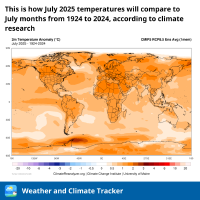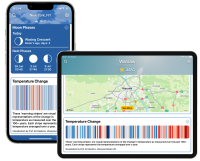Meteorological vs Astronomical Winter - What's the Difference?

While many associate the winter season with cold weather, snowy landscapes and the holiday season, there is more than one way to define the beginning and end of winter. Meteorologists and astronomers use two different systems to delineate the seasons - meteorological winter and astronomical winter. Let’s explore the key differences between these two definitions of winter.
Meteorological Winter
Meteorologists define winter based on annual temperature cycles and patterns rather than the position of the earth relative to the sun. In the meteorological calendar, the seasons are demarcated into three-month periods that run from December through February in the Northern Hemisphere and June through August in the Southern Hemisphere. Therefore, meteorological winter always falls within these months each year, regardless of the timing of the winter solstice.
Most weather forecast agencies and climatologists around the world follow the meteorological season definitions in order to divide the year into distinct three-month periods for record-keeping and data analysis purposes.
Astronomical Winter
In the astronomical calendar, the precise start dates of the seasons are determined based on the position of Earth in relation to the sun. Astronomical winter begins on the winter solstice, which occurs annually around December 21–23 in the Northern Hemisphere and around June 20–23 in the Southern Hemisphere. On the winter solstice, the sun shines at its most oblique angle to the Earth’s surface, resulting in the shortest day and longest night of the year. After the winter solstice, daylight hours start increasing once again heralding the official astronomical start of spring.
When Does Winter Start Around the World? In the Northern Hemisphere:
- Meteorological winter: December 1 to February 28/29
- Astronomical winter: December 21/22
In the Southern Hemisphere:
- Meteorological winter: June 1 to August 31
- Astronomical winter: June 20/21
While meteorological seasons provide consistency for record-keeping, the true astronomical start of winter varies slightly year to year and occurs on the dates of the winter solstice in December/June in the North/South respectively.
While meteorological seasons provide consistency for record-keeping, the true astronomical start of winter varies slightly year to year and occurs on the dates of the winter solstice in December/June in the North/South respectively.
This post is also available in: Spanish, Portuguese.



